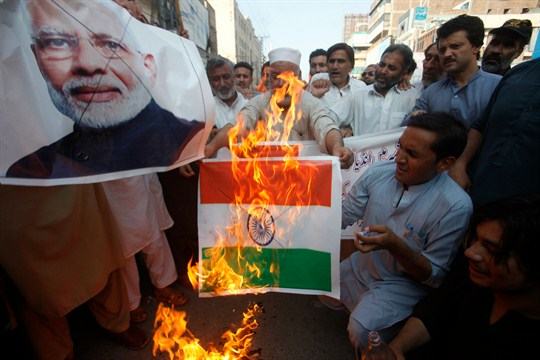Will India’s Modi Get Away With Upending the Status Quo in Kashmir?

In a sudden move on Aug. 5, India’s government announced it was eliminating the special, semiautonomous status of the state of Jammu and Kashmir by revoking Article 370 of the Indian Constitution. The decision is a watershed moment in the 72-year-long standoff between India and Pakistan over control of the Kashmir region, as well as for the Kashmiri peoples’ long struggle for political autonomy. It opens an uncertain new chapter in Indian-administered Kashmir, with reverberations far beyond its contested borders.
The historic arrangement under which Jammu and Kashmir was to have a greater degree of political autonomy than other Indian states is no more. But Prime Minister Narendra Modi’s government went further, dividing the state in two by lopping off its Buddhist-majority eastern wing of Ladakh. It downgraded both Ladakh and the condensed Jammu and Kashmir to union territories, which have fewer rights than states in India and are governed directly by New Delhi. And India repealed Article 35A of the Constitution, which stipulated that only Jammu and Kashmir’s legislature could define who can be a “permanent resident” there.
